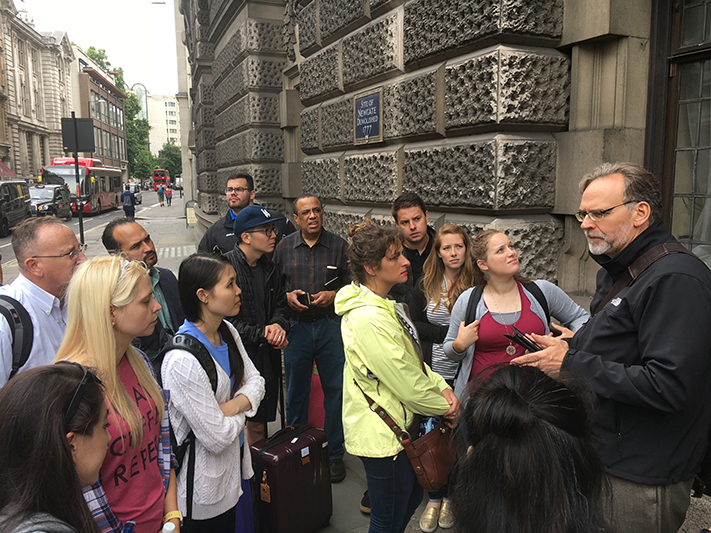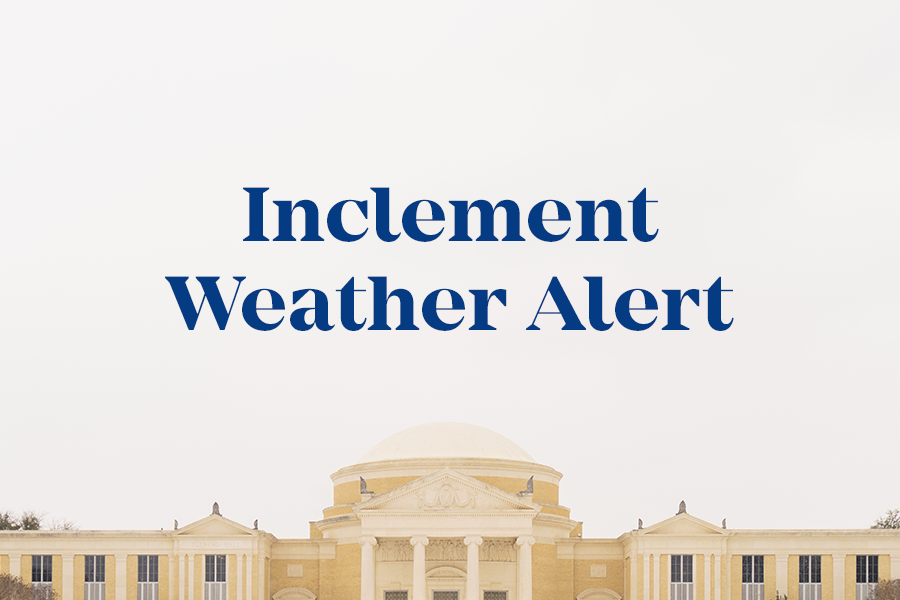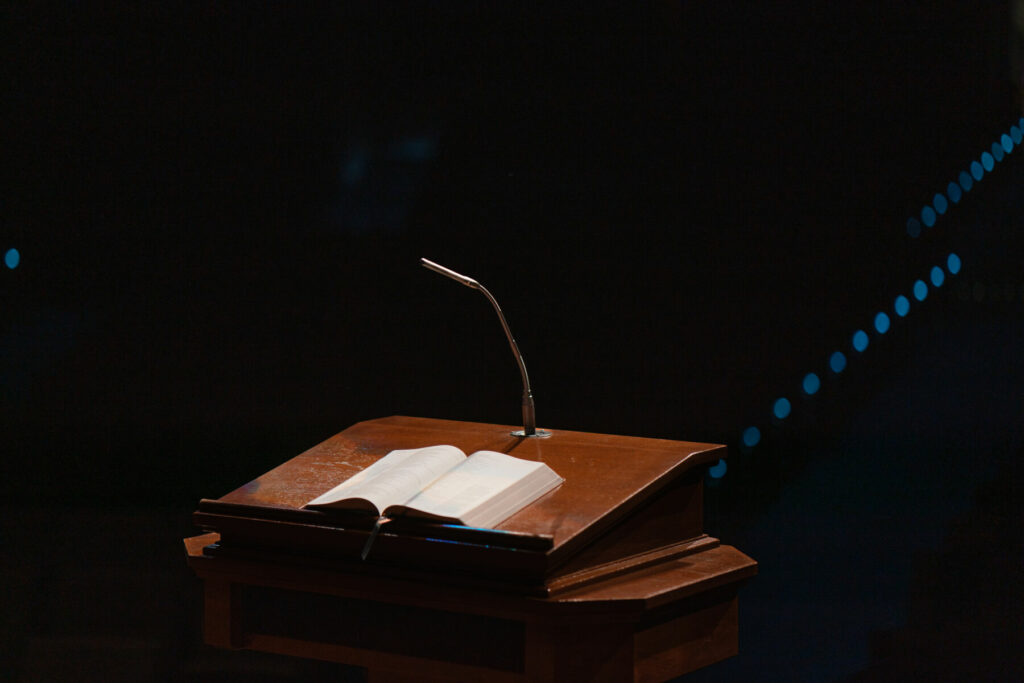Oxford Study Tour opens a world of learning

Twenty-nine seminary students saw church history from a unique perspective and broadened their viewpoints during the 2017 Oxford Study Tour, July 10-26. The students traveled to the university city of Oxford, England, and visited sites of key importance to church history while earning credits for classes offered by Southwestern Seminary professors.
Over the years, the annual study tour has gone through a variety of changes, but what has remained constant is a focus on church and Baptist history while offering participants an opportunity to engage in cross-cultural ministry. For 16 days, students experienced the sights, sounds and culture of historic cities as they studied theology and philosophy and relived church history.
“Students heard lectures about C.H. Spurgeon while sitting in churches where he was saved and where he preached,” says Madison Grace, associate professor of Baptist history and theology and director of the Oxford Study Program. “They experienced the spaces where the modern missions movement came into being as they walked through William Carey’s home and Andrew Fuller’s church. They walked over markers where Thomas Cranmer and George Wishart were put to death.” Added to this were trips to the ancient Roman towns of Colchester and Bath, rich in both world and church history.
“These are places most people only read about in books or conduct research on for a paper, but we were able to stand in these places while receiving lectures on these historical figures,” says bachelor’s student Larry Williamson. “To walk where they walked and to literally be where they gave their very lives for the sake of the Gospel was something that none of us will ever forget.”
One of the highlights of the Oxford trip is the community that builds between participants and the faculty. “The closeness of the group was one of the unique aspects of the trip,” Williamson says. “It was something that could be felt and seen just by being around the group long enough.”
This year, Grace was joined by Southwestern professors Malcolm Yarnell and R. Keith Loftin, who taught church history and philosophy of religion, respectively. Yarnell focused his lectures around places the group visited, including the British Museum and the medieval ruins of a monastery in Colchester. Loftin discussed issues of God and time in lecture settings as well as over meals, ice cream and walks around Oxford University. Participants also heard about current church work in the United Kingdom and met with several church planters in London who shared about the exciting work the Lord is doing as well as the challenges they face.
Personal evangelism has always been an important emphasis of the Oxford program. Again this year, students had numerous opportunities to share the Gospel on the streets of England.
“In England, people are more receptive to a Gospel conversation, even if they do not believe in it,” Williamson says. “They will, for the most part, at least hear you out.”
On a London street, Williamson met a man who expressed his frustrations with going to church. “The rich traditions created an obstacle for him,” Williamson says. “I spoke with him about the importance of a relationship with Christ and not on the traditions of churches. Although he made excuses and danced around the question of if he had ever asked Jesus to be his Lord and Savior, I could tell he at least was willing to listen to the conversation.”



